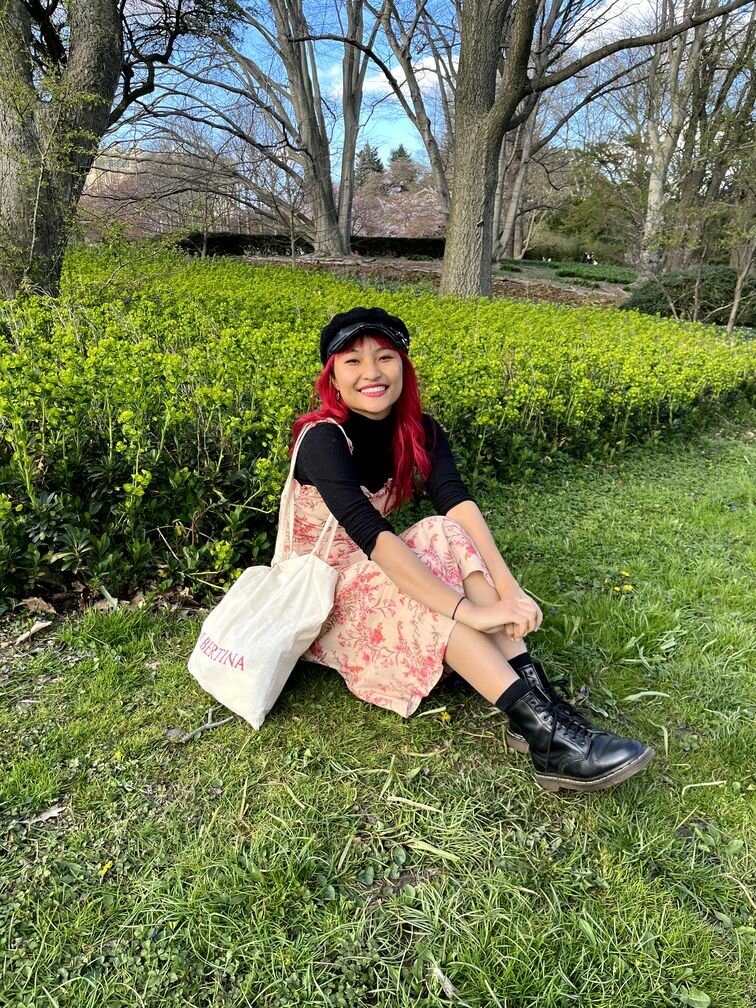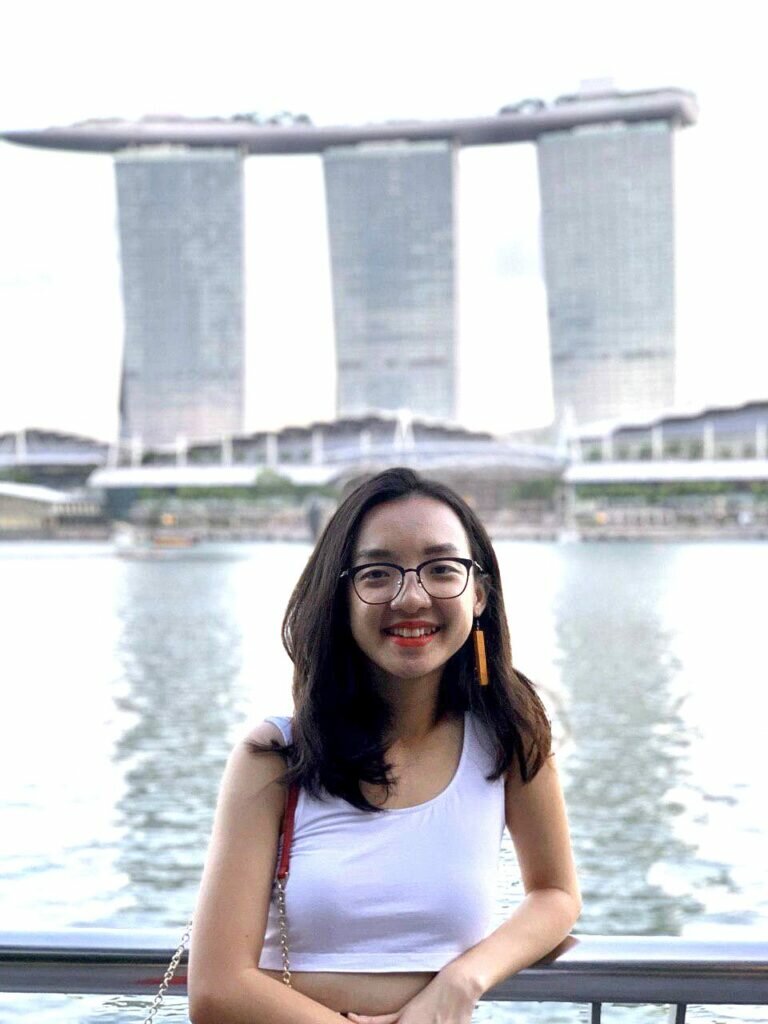Generation Z isn’t here for your grandstanding or smarmy attempts at greenwashing. This is the cohort that has witnessed – in searing detail – the cataclysmic effects of climate change as insatiable fires ripped through vast tracts of nature, and their plans were scuppered by an unforgiving pandemic.
According to a recent Credit Suisse Research Institute report, Gen Z and millennial consumers in China, India and other emerging economies are more environmentally conscious, more likely to buy sustainable products and more distrustful of corporate sustainability claims than their counterparts in developed countries. But they aren’t just passive consumers. We are, by now, familiar with the firebrand speeches of Greta Thunberg, excoriating world leaders for their climate inaction.
Closer to home, the momentum continues with the 2022 edition of #WeGotThis, a global youth sustainability incubator presented by WWF-Singapore and Temasek Foundation. We caught up with two bootcamp speakers who are using their digital savvy to steer the narrative surrounding environmental and social issues.
Tammy Gan is the Head of Content and Storytelling at Advaya, Production Manager at Green Dreamer Podcast, and coordinates at Bad Activist Collective. She’s on a quest to create digital and physical community and learning spaces to build towards a more just, regenerative and loving world.
How did you start your sustainability journey?
While I was in college, I stumbled upon an ethical fashion documentary called The True Cost, which was about the environmental and social injustices within the fashion industry. That documentary made me realise that everything we are connected to and the clothes that we purchase often have a very dark history and reality that we don’t see, and the kind of systems we are embedded in are more complex than what we make them out to be. This made me realise that environmental issues are also social justice issues and that really made me more aware of how we move and consume in the world.
Describe the environmental issue that is most triggering for you.
That would be the way in which the people don’t realise that a lot of climate crises are caused by the systems that we are embedded in. I think a lot of people assume that environmentalists are angry about straws and personal usage of energy or the way they eat, but I am not one of those environmentalists. I don’t think that pointing fingers at an individual is a good way to deal with climate crisis. Instead, it’s about sharing knowledge, tools, and resources to empower more people to make the right decisions, which is why programmes such as #WeGotThis are vital.
Assuming you’ve earned the same amount of clout as Greta Thunberg overnight. How would you do things differently from her?
Greta Thunberg has been under the spotlight quite a lot and it is honestly quite problematic how people like to criticise young environmentalists. Greta reflects many biases within the environmental movement, it is not necessarily about her. If I were to earn the same amount of clout as her overnight, the biggest thing I would do is ensure that whenever I talk about environmental issues, they are in conversation with social justice issues. For example, whenever I talk about the climate being wrecked, I’d include the fact that it goes hand in hand with people being economically exploited and that vulnerable communities are the ones who suffer the most.
If you had to account for your personal transgressions against environmental sustainability, what would they be, and how would you go about making amends for these purported “crimes against the environment”?
If we all had the opportunity, we would be making better decisions, but the reality is that not everybody can readily access resources to do so. I don’t think that people should have a list of environmental crimes but rather I would encourage people to think about how they could build a more equitable world in which the climate crisis is mitigated, managed and adapted. Also, maybe think about ways to work towards a just future for everybody, a world in which everyone who is oppressed and marginalised is liberated.
Woo Qiyun is an environmentalist and self-taught doodler who is known for her Instagram page The Weird and Wild. She combines her technical expertise in sustainability with graphics to break down the complexities of climate change. She’s currently working on creative platform, Climate Commons, and a podcast with the same goal of making climate information accessible
How did you start your environmental conservation journey?
My earliest memory is from when I was nine and wrote a journal entry dedicated to Steve Irwin around the time he passed away – he was a big hero of mine as a child. At this point, my parents were making me read the newspaper to improve my English. Many of the articles I read were focused on environmental issues, as they happened to be the shortest ones in the newspaper. The more I read, the more different issues started to resonate with me, such as how extinction of certain species was linked to deforestation, and how the haze was connected to my own use of things like palm oil.
Describe the environmental issue that is most triggering for you.
The rise in marketing around environmental issues is a particular area of difficulty for me. For example, when brands and organisations make sustainability claims that are not substantiated, where the intent is more for PR/brand value rather than rooted in the science behind sustainability.
We have gotten to a point where such claims are used so easily and loosely – what does eco-conscious or sustainably-made really mean? Are they substantiated with transparent and verifiable data? Brands need to go beyond this, instead of laying a ‘green sheen’ over things. A lot of time is spent on figuring out the truth behind such labels, rather than focused on solutions.
What would you like to change, in that respect?
I’d like to see more intentional and deliberate use of scientific terms. Also, greater regulation around how these terms are used would help to protect consumers and ensure that they are being clearly communicated with the public.
While we’re on the topic of blue-sky thinking – name one crazy sustainability solution you’ve dreamt up in your spare time.
Beyond The Weird and Wild, I’m expanding my science communication efforts to building Climate Commons, which aims to use creative web design to communicate the complexities of different climate issues. We are currently working on a project focused on explaining palm oil and haze.
I also recently worked on a series of infographics focused on reimagining shopping malls. One thing I would love to see is a mall that has been consciously designed and centred around serving communities and conscious consumption modes. This would be a space that is energy-efficient and may include cooling zones (great for the very hot weather we are experiencing recently), water coolers, circular takeaway solutions, and a place to recycle waste and fix things.
We have gotten to a point where green claims are used so easily and loosely – what does eco-conscious or sustainably-made really mean? Are they substantiated with transparent and verifiable data?
Woo Qiyun
If you had to account for your personal transgressions against environmental sustainability, what would they be, and how would you go about making amends for these purported “crimes against the environment”?
I believe that everyone practices environmental sustainability imperfectly, be it due to personal choice, circumstance, or systemic inefficiencies. Think of the example of taking your own container to transport food. This might see you still using plastic in some way, or it might mean heightened water usage to clean the container. Our current systems make it difficult for us to practise sustainability; it’s almost impossible for us to not have some part of our lives embroiled in crimes against the environment because of how complex supply chains are, etc.
To me, learning to make better choices and advocating for better laws and regulations, speaking up and writing to corporations is my way of saying that I want to live life differently. I don’t want to feel guilty about the way I am living, but to advocate for systems to be updated to minimise my own personal actions contributing to these harms.


